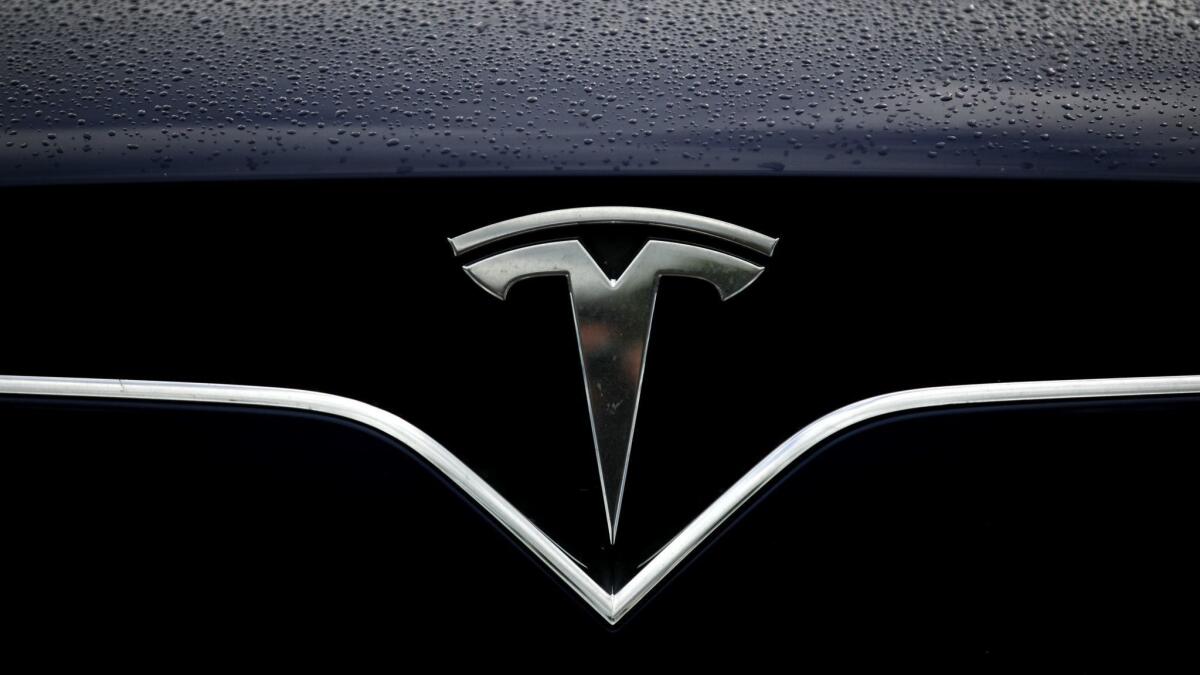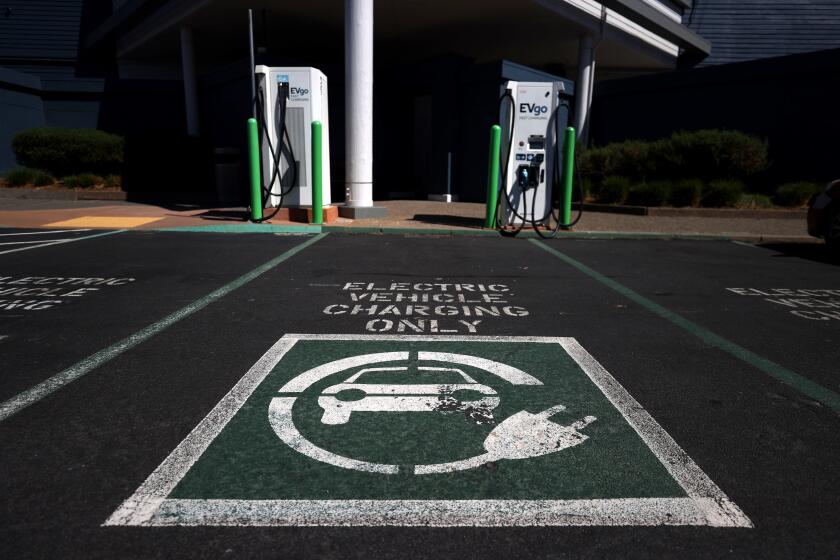Tesla lowers prices on Model S and X vehicles as its stock slumps

Tesla Inc., faced with a slumping stock price and questions about demand for its vehicles, has lowered the U.S. base prices of its two most expensive models.
The Elon Musk-led automaker cut $3,000 from the price of the Model S sedan and $2,000 from the Model X SUV.
Tesla said in a statement that, like other companies, it periodically adjusted prices and available options. The decreases offset price increases from a month ago, when Tesla offered longer battery range and added a new drive system and suspension. The statement didn’t say whether slowing sales had influenced the decision.
The Model S now starts at $71,250, and the X starts at $71,950. Those prices do not include federal and state tax credits.
Several analysts have questioned whether the company can sell enough cars to cover its expenses without dipping into cash reserves. Last week, Musk called for a “hardcore” review of all the company’s expenses to manage cash burn.
Tesla’s stock is under pressure, and in the last two days its shares have wavered below the $200 mark. After dipping Tuesday morning, shares ended the day at $205.08, barely changed from Monday’s closing price. They are down more than 38% so far this year, lopping more than $20 billion off the company’s market value. On Monday, the shares hit their lowest point since late 2016.
On Tuesday, Tesla sustained another blow from Wall Street analysts: Morgan Stanley slashed its worst-case scenario for the share price to just $10 over concern the company had saturated the electric-car market.
“Demand is at the heart of the problem,” analysts led by Adam Jonas said in a note. “Tesla has grown too big relative to near-term demand, putting great strain on the fundamentals.”
Jonas lowered his “bear case” for Tesla shares from a previous estimate of $97 to take into account the risk that the company misses its current sales forecast for China by about half. He maintained his $230 price target.
The price reductions for the Model S and X vehicles are less than 3%. Last week, Tesla raised the price of its top-selling Model 3 by $400, pushing the base price to $35,400. “By any reasonable standard, these small changes are not newsworthy,” the automaker said in a statement.
After handing over just 63,000 cars in the first quarter, Tesla expects to deliver as many as 100,000 cars in the second and four times that for the year. Hitting the full-year target will be a “Herculean task,” Wedbush Securities analyst Dan Ives wrote in a report Sunday, calling the issues plaguing the company a “code red situation.”
Even Ben Kallo, a longtime Tesla bull at Robert W. Baird & Co. who maintains the equivalent of a “buy” rating on the stock, wrote Tuesday that it could take several weeks or months for the negative narrative surrounding the carmaker to shift. He cut his price target to $340 from $400, telling clients that “credibility questions, messaging/communication and significant noise around TSLA have kept incremental buyers out of the market.”
For Tesla to breathe life back into demand, it will have to aggressively expand into China, offer lower-priced sport utility vehicles and supply mobility fleets, Morgan Stanley’s Jonas said. U.S.-China trade tensions and new auto competitors put this strategy at risk, he said.
“We give Tesla credit for tapping into the world’s largest EV market for a number of years” in China, Jonas said. “We strongly suspect a host of national champions to emerge.”
Tesla isn’t alone in battling weaker global markets, including China. Germany’s central bank warned that its nation’s auto industry — one of the key pillars of Europe’s largest economy — is facing more trouble as China’s slowdown deepens.
The slump comes just as incumbent carmakers are spending heavily to develop electric cars.
Tesla said last month that it lost $702.1 million in the first quarter, which was among its worst quarters in two years. Sales tumbled 31% in the period. Musk predicted another loss in the second quarter but said Tesla would be profitable again by the third quarter.
In January, the automaker cut its prices by $2,000 per vehicle, acknowledging that the pending expiration of a $7,500 federal tax credit for its electric cars will hurt sales. The credit is gradually being phased out for Tesla by the end of the year.
Bloomberg was used in compiling this report.






